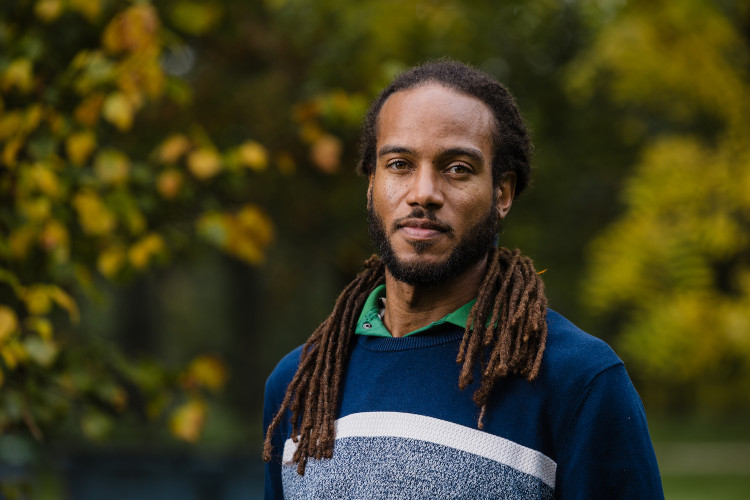Fri 20 June
19:00–22:00
Lecture Malcom Ferdinand — LOVING THE EARTH OURSELVES: UNDOING THE COLONIAL INHABITATION
On Friday the 20th of June, RADIUS has the pleasure of welcoming philosopher and environmental engineer Malcom Ferdinand, who will deliver a lecture titled Loving the Earth Ourselves: Undoing the Colonial Inhabitation. The lecture will explore the interconnectedness of human and non-human struggles under colonial and capitalist systems, the importance of interspecies anti-colonial alliances, and the need of a decolonial perspective on pollution to reveal and counter ecological violence.
In this lecture, Ferdinand will first argue for the importance of forging interspecies alliances that can connect animal causes with anti-racist, anti-colonial, and feminist struggles. Ferdinand contends that the colonial inhabitation of the Earth—the unsustainable, violent, racist, and patriarchal way of inhabiting the planet since modern European colonisation projects in the 15th century—is based upon the slavery and the consumption of a number of non-human animals, whose objectification and subjection to mistreatment and death systematically mirrors the oppression of enslaved Black peoples during the transatlantic slave trade. Second, Ferdinand will reflect on the ecological violence brought about by chemical pollution in the soil of Martinique and Guadeloupe due to monocultural banana plantations. By “thinking like a weevil”—a kind of beetle considered a pest as they disrupt plantation crops—Ferdinand will reveal the commonality between the violent language and treatment inflicted both on this non-human species and on the human inhabitants of the Caribbean islands. In doing so, Ferdinand encourages an interspecies undoing of the colonial inhabitation of the Earth and its ecological devastation.
SPEAKER BIOGRAPHY
Malcom Ferdinand is an environmental engineer from University College London and doctor in political philosophy from Université Paris Diderot. He is currently researcher at the CNRS (IRISSO/University Paris Dauphine). At the crossroads of political philosophy, postcolonial theory and political ecology, his research focuses on the Black Atlantic and particularly the Caribbean. He explores the relations between current ecological crises and the colonial history of modernity. His work has been featured in numerous academic journals and includes the award winning book Decolonial Ecology: Thinking of Ecology from the Caribbean World (Seuil, 2019 & Polity, 2021). He recently published a comprehensive study on the pesticides contamination of Martinique and Guadeloupe in a book called S'aimer la Terre: défaire l'habiter colonial (Seuil, 2024).
PRACTICAL INFORMATION
⌀ Date: Friday 20 June 2025
⌀ Doors open: 19:00 – 19:30
⌀ Start and duration lecture: 19:30 – 21:00
⌀ Drinks reception and opportunity to purchase/sign publication: 21:00 – 22:00
⌀ Admission: €10,00 (lecture), €15,00 (lecture + exhibition)
⌀ The exhibitions ALMA HEIKKILÄ: INDIVIDUALITY, IDENTITY, AND RELATED METAPHYSICAL IDEAS and WE ARE ALL HOLOBIONTS! can be visited on 20 June between 11:00 and 19:00.
⌀ Main language: English
⌀ Location: RADIUS Water Tower, Kalverbos 22
⌀ Note that the location is not wheelchair accessible. Please get in contact with us to discuss alternative ways to allow your participation.
⌀ This lecture is the inaugural lecture of ARCHIPELAGO, a series of lectures convened by RADIUS and inspired by Édouard Glissant’s term “archipelagic thinking”. ARCHIPELAGO is made possible with the support of Institut français NL.
